 Your new post is loading...
 Your new post is loading...
Scrum is an iterative and incremental agile software development framework for managing product development. It defines "a flexible, holistic product development strategy where a development team works as a unit to reach a common goal", challenges assumptions of the "traditional, sequential approach" to product development, and enables teams to self-organize by encouraging physical co-location or close online collaboration of all team members, as well as daily face-to-face communication among all team members and disciplines involved.
Scrum is an iterative and incremental agile software development framework for managing product development.[1][2] It defines "a flexible, holistic product development strategy where a development team works as a unit to reach a common goal",[3] challenges assumptions of the "traditional, sequential approach"[3] to product development, and enables teams to self-organize by encouraging physical co-location or close online collaboration of all team members, as well as daily face-to-face communication among all team members and disciplines involved.
A key principle of Scrum is its recognition that during product development, the customers can change their minds about what they want and need (often called requirements volatility[4]), and that unpredicted challenges cannot be easily addressed in a traditional predictive or planned manner. As such, Scrum adopts an evidence-based empirical approach—accepting that the problem cannot be fully understood or defined, focusing instead on maximizing the team's ability to deliver quickly, to respond to emerging requirements and to adapt to evolving technologies and changes in market conditions. Learn more / En savoir plus / Mehr erfahren: http://www.scoop.it/t/wordpress-annotum-for-education-science-journal-publishing
Via Gust MEES, Mark E. Deschaine, PhD
juandon "Nada es absoluto, hasta la realidad más evidente lo es , nadie tiene todas las certezas controladas, siempre existe otro camino que se nos escapa a nuestros conocimientos, esa es nuestra sociedad…” Juan Domingo Farnos Hemos heredado un paradigma donde el éxito depende de un solo grado de la letra, sin embargo, en…
Sessions around the clock, around the worldJoin us for a free, online conference. Share with and learn from other educators. Hear from inspiring speakers. Get tips and tools to help boost student engagement, collaboration and productivity and in the classroom. Watch the video below to see highlights from the 2015 event.
Via Dr. Susan Bainbridge
There is no leadership, personal or organizational, without listening. In fact, ability to truly listen (and not just hear) is the foundation of having a conversation, building trust, influencing others, resolving conflicts, driving your vision, building relationships, implementing change and... Learn more / En savoir plus / Mehr erfahren: http://www.scoop.it/t/21st-century-learning-and-teaching/?tag=listening
Via Gust MEES
that it’s important for young people to become economically independent and self-sufficient. But to do that, he argues, they shouldn’t all learn the same thing. Instead, they should be learning to be adaptable, to be innovative, to flow with change, to collaborate and other globalized skills that will apply to whatever area of work they are passionate about pursuing. An education can help expose students to different life paths and support them in finding their passions, while giving them the transferable skills to attack any problem. Learn more / En savoir plus / Mehr erfahren: http://www.scoop.it/t/21st-century-learning-and-teaching/?tag=Sir-Ken-Robinson
Via Gust MEES
Teachers at Arroyo High School are seeing how years of integrating growth mindset messages into every class have changed student attitudes about learning.
Via Sandeep Gautam
Logan Laplante is a 13 year-old boy who was taken out of the education system to be home schooled instead.
You can actually use Twitter in the classroom with Bloom's Taxonomy thanks to this awesome table that details nearly two dozen different ways to integrate the pair!
Via Gust MEES
Paul Salopek and Ahmed Kabil Writing will always be important, but weaving text, images, sound, and presentation together can give students more and diff
Via Gust MEES, juandoming, Elisa Hergueta
|
El aprendizaje no tiene que ser una experiencia "solitaria".
El psicólogo ruso Lev Vygotsky sugirió que el conocimiento se construye a través de nuestras interacciones con los demás.
Los MOOC (Massive Open Online Learning) aprovechan nuestras necesidades sociales inherentes reuniendo a las personas para que aprendan el mismo material en un grupo virtual. Los estudiantes pueden expresar lo que están sintiendo y experimentando con los demás en un espacio compartido, haciendo que el viaje de aprendizaje sea más agradable y menos desalentador.
A medida que las personas ganen confianza, a menudo disfrutarán de una competencia amistosa con sus compañeros aprendices para forzarse a sí mismos a competir en ejercicios y tareas. El reconocimiento es parte de nuestra necesidad de desarrollar la autoestima, y algunos cursos incorporan la gamificación para recompensar los logros de los estudiantes y la ayuda comunitaria. Conozca más / En savoir plus / Mehr erfahren: https://www.scoop.it/t/21st-century-learning-and-teaching/?tag=Social+Learning
Via Gust MEES, María Dolores Díaz Noguera
Over the last decade, increased attention has been paid to the social and emotional learning (SEL) needs of children. This area of learning is necessary and essential to address -- for children and adults.
It's time that schools take responsibility for meeting the entire range of learning needs that educators have -- the need to use new technologies, to understand and implement new standards, to use new assessment strategies, and their needs to attend to their own social and emotional learning.
Via Gust MEES, Amanda McAndrew, Jim Lerman
Free resource of educational web tools, 21st century skills, tips and tutorials on how teachers and students integrate technology into education
Via Marta Torán
Shifting to “Learn by Doing” Becker of NMC says just as the role of the teacher is switching from “sage on the stage” to one of a coach or guide, there is a shift from rote to active learning. To foster skills of teamwork and collaboration, online education is incorporating group projects and hands-on labs to help students think more critically and retain the content. Building on the concept of “learn by doing,” online education is expanding to connect students from around the world to learn together and meet professionals. Morris is also executive director of the Center for Interactive Learning and Collaboration, which partners with more than 200 cultural organizations, such as art museums, to offer real-time interaction with experts in various fields. This exposure can help answer student questions about the relevance of a geometry class, for instance. “To answer the questions of why you are doing it is key,” says Morris. “[Students] are motivated when they understand and have a reason to understand the material.” Learn more / En savoir plus / Mehr erfahren: http://www.scoop.it/t/21st-century-learning-and-teaching
Via Elizabeth E Charles, Yashy Tohsaku, Gust MEES, Pieter de Vries
How The Activity Learning Theory Works
Vygotsky’s earlier concept of mediation, which encompassed learning alongside others (Zone of Proximal Development) and through interaction with artifacts, was the basis for Engeström’s version of Activity Theory (known as Scandinavian Activity Theory). Engeström’s approach was to explain human thought processes not simply on the basis of the individual, but in the wider context of the individual’s interactions within the social world through artifacts, and specifically in situations where activities were being produced.
In Activity Theory people (actors) use external tools (e.g. hammer, computer, car) and internal tools (e.g. plans, cognitive maps) to achieve their goals. In the social world there are many artifacts, which are seen not only as objects, but also as things that are embedded within culture, with the result that every object has cultural and/or social significance.
Tools (which can limit or enable) can also be brought to bear on the mediation of social interaction, and they influence both the behavior of the actors (those who use the tools) and also the social structure within which the actors exist (the environment, tools, artifacts). For further reading, here is Engeström’s own overview of 3 Generations of Activity Theory development. The first figure shows Second Generation AT as it is usually presented in the literature.
Via Gust MEES
But what I did realize is that successful people are successful because they approach learning in a consistent, systematic, results-focused way. Bravery isn't a requirement for success. Innate talent isn't a requirement for success. Talented, highly skilled people don't take big risks yet they still learn to accomplish big things.
How? They prepare. They train. They constantly experiment and adapt and refine, refine, refine. Successful people gain superior skills not by breaking through the envelope but by approaching and then slowly and incrementally expanding the boundaries of that envelope.
The key to learning is to make small, smart changes, evaluate the results, discard what doesn't work, and further refine what does work. When you constantly modify and refine something you already do well, you can do it even better. Learn more / En savoir plus / Mehr erfahren: http://www.scoop.it/t/21st-century-learning-and-teaching/?tag=Success
Via Gust MEES
Study of school trips to a museum provides evidence that art can elevate the mind.
This is downright spooky. It's an interactive infographic all about why your brain craves infographics. Food for thought!
Via Gust MEES
|



 Your new post is loading...
Your new post is loading...

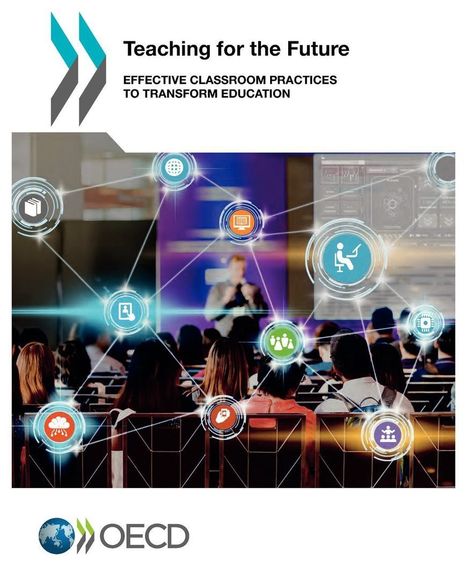









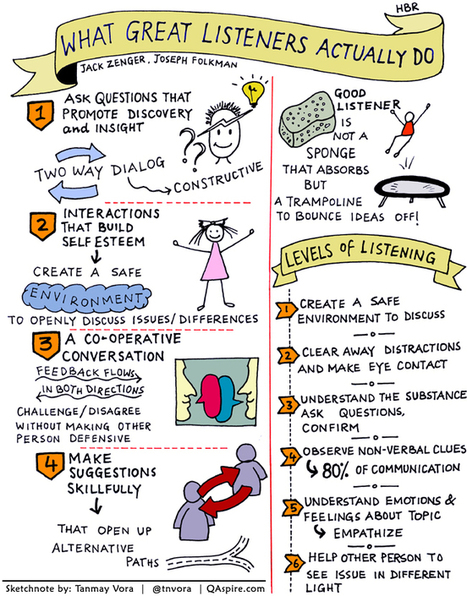


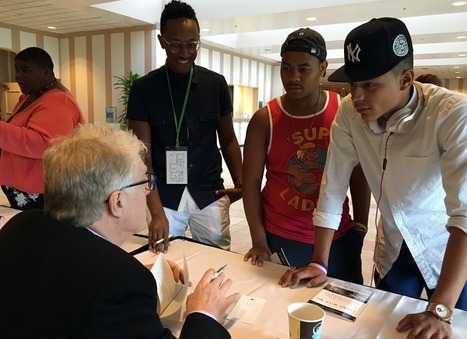


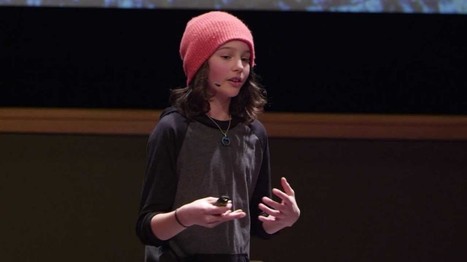
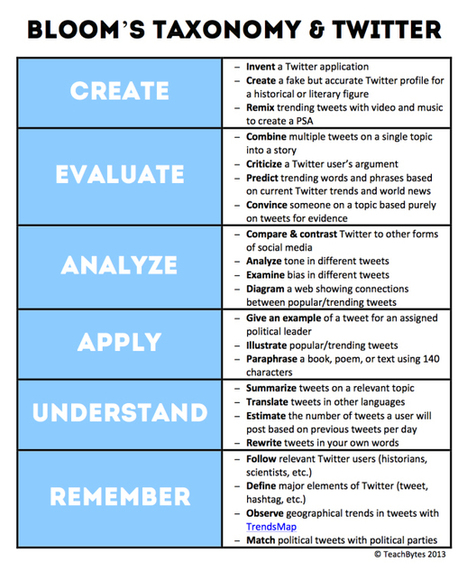



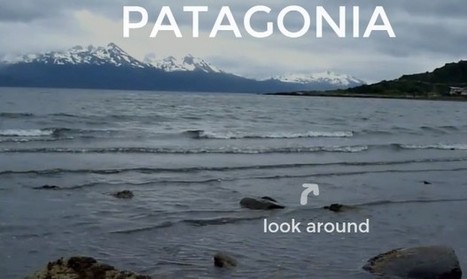
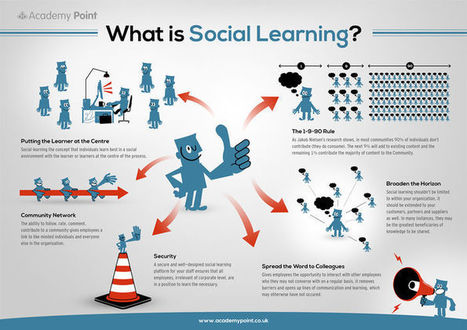




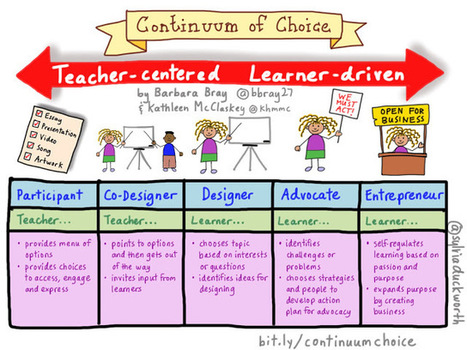


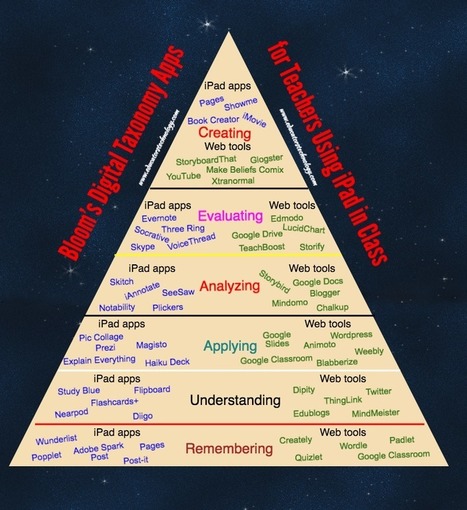



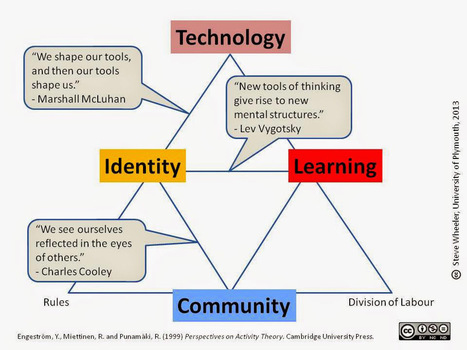









![13 Reasons Your Brain Craves Infographics [Infographic] | Help and Support everybody around the world | Scoop.it](https://img.scoop.it/drRLnCgu2GGUjqDC_MCtSzl72eJkfbmt4t8yenImKBVvK0kTmF0xjctABnaLJIm9)







